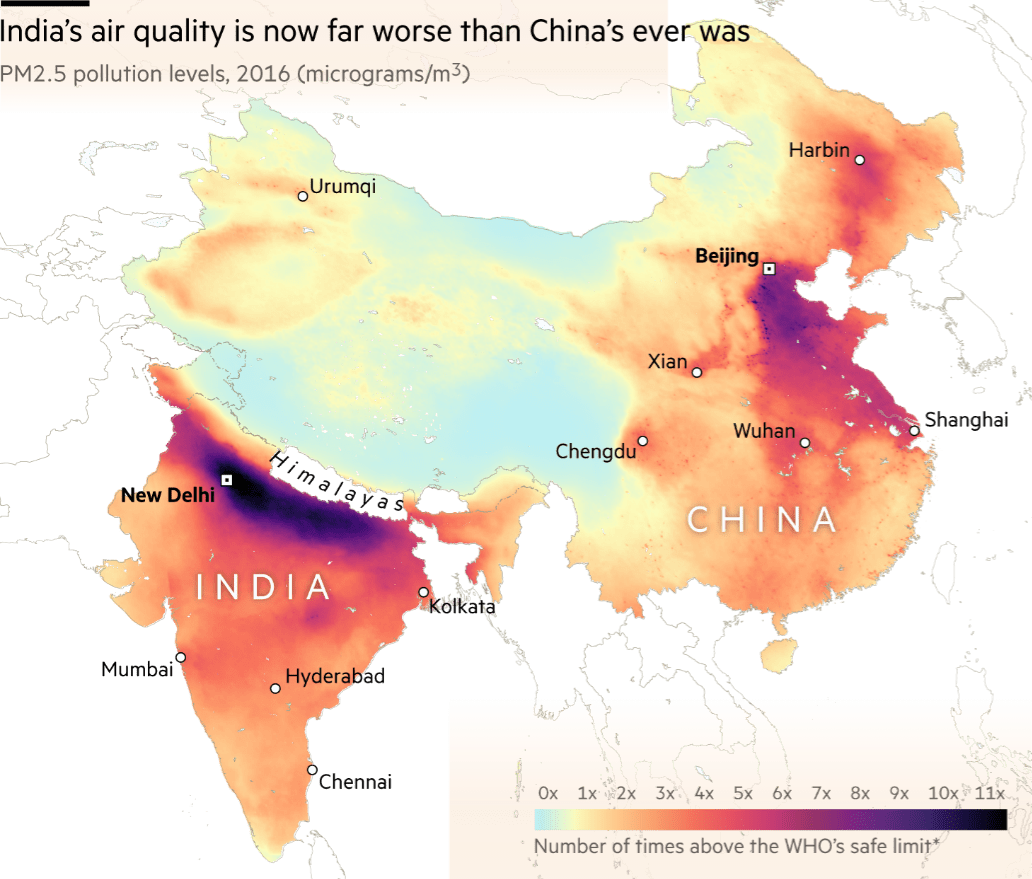As a result of toxic air pollution, the local government in Delhi- India’s capital city, handed out five million masks across schools in order to protect students from what is a health issue.
The levels of tiny particulate matter (PM2.5) in Delhi was 20 times more than the healthy level, as suggested by The World Health Organization (WHO). It is supposed to be no more than 25 micrograms per cubic metre on average in 24 hours.
A public health emergency has been declared, warning citizens to stay at home and schools has been closed contemporary.
This is not the first time India has faced such serious air pollution conditions. Although China has been been criticized for the worst air condition during the last few years, according to the data from Nasa, the population of people in India who live in serious polluted areas surpassed China back in 2016. This is due to a number of factors, including the industrial process, heavy traffic with growing population, as well as burning fields by farming.
Additionally, numerous fireworks celebrations for traditional festival played an important role in the toxic pollution. More than 4-10 people in India are exposed to 5 times the safe limit of particulate matter in the air they breathe, meaning the local citizens in Delhi are more likely to face elevated risks for heart attacks, increased risk of asthma, and development of children’s lungs.
Karthik Ganesan, a researcher who worked for the council of Energy, Environment and Water, emphasised that
“Breathing in Delhi is dangerous for 300 days of the year.”
The local government has come out with new regulations to cure the pollution, with all fireworks now forbidden and construction in the city suspended. There are groups of young student protesters who are gathering on the street, protesting and demanding that the local government comes out with long term actions to save the city from pollution, saving the health of the population of the future.
It is necessary and urgent for developing countries to change their industrial process sustainably by thinking more about the health of the citizens, rather than the benefit of the government itself.
Image: Financial Times

